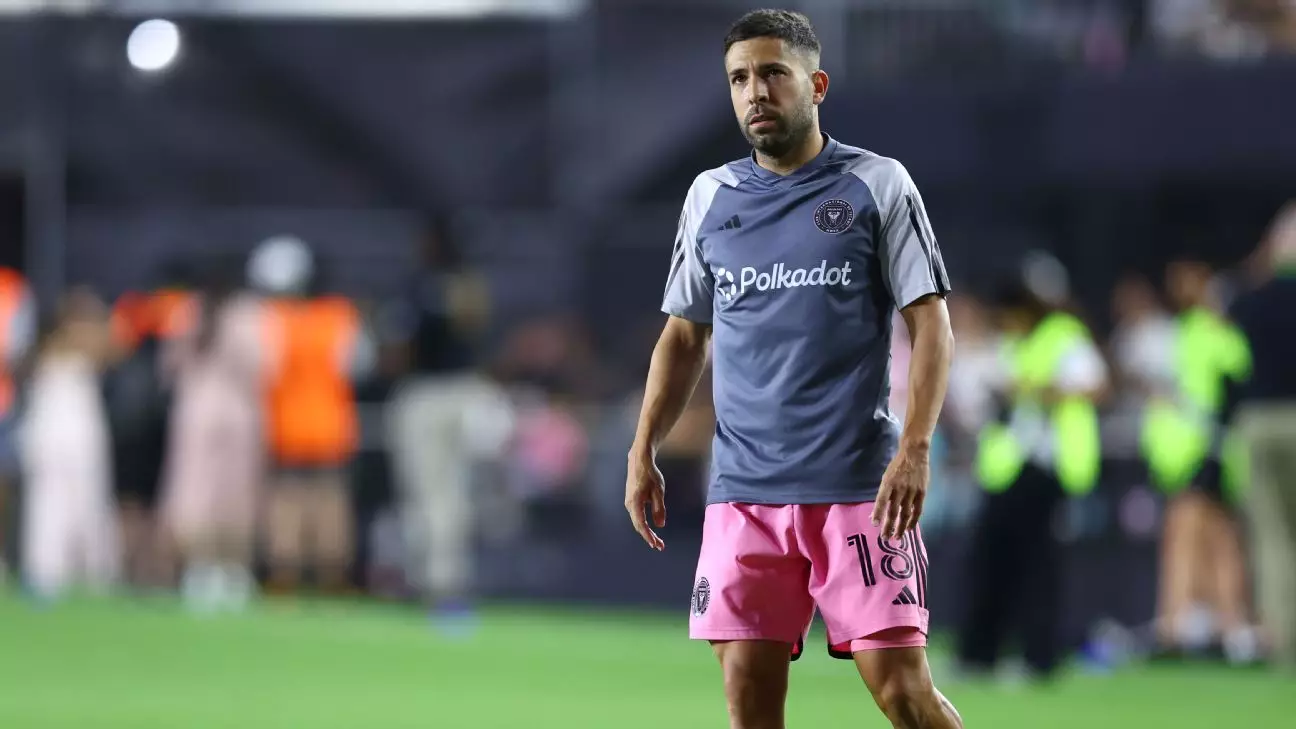When Inter Miami faced Atlanta United in what marked the conclusion of their playoff run, it was not just the match that drew attention but also the post-match reflections by key players. Jordi Alba, a prominent figure in this narrative, took the opportunity to voice concerns about the structure of the Major League Soccer (MLS) postseason. His remarks sparked a debate around fairness within the playoff system and provided insight into the expectations surrounding Inter Miami’s inaugural season in the postseason. This article seeks to analyze Alba’s criticism, the implications for the team, and how this playoff format stacks up against more conventional models seen in global soccer.
After Inter Miami’s narrow 3-2 defeat against Atlanta United, Alba expressed discontent with the playoff format, calling it “unfair.” This was not merely the frustration of a player who had just been eliminated, but a well-structured argument against a system that awards teams the opportunity to advance through a format that many see as unconventional. The current structure, which features a best-of-three series before switching to single-elimination rounds, contrasts sharply with formats commonly used worldwide. These formats typically see the top teams facing off directly in knockout rounds, allowing for clearer merit-based advancement.
Alba suggested that a more straightforward championship approach—where the best team from each conference competes for the title—would provide a fairer representation of skill and competition. This sentiment finds resonance within the soccer community, where playoff series are often criticized for not accurately depicting a team’s overall performance throughout the season. The crux of Alba’s argument echoes a broader conversation about competitive integrity in leagues that employ round-robin or playoff formats against those that prioritize leagues and direct elimination stages.
Despite a season filled with promise—marked by a record-setting performance of points and quality gameplay—head coach Gerardo Martino did not label the season a success after the playoff exit. This perspective illustrates a critical issue in sports: the distinction between overall team progress and the benchmarks of success. It raises the question: should a team be viewed through the lens of its season-long achievements, or should prominence in high-stakes matches define its legacy?
Martino’s refusal to deem the season successful because of the early playoff exit aligns with a prevailing mindset in professional sports where winning championships overshadows all else. It creates a juxtaposition between how fans view season performances and how athletes and coaches interpret their journeys. For Inter Miami, even as they reached unprecedented heights, the lack of a deeper postseason run casts a shadow over their achievements.
As Inter Miami transitions into the offseason, the focus will need to shift from retrospection to future planning. The team garnered attention with the signing of star players like Lionel Messi but now must evaluate its overall roster strategy moving towards the 2025 campaign. Key decisions will revolve around building a more robust squad capable of navigating the complexities of the playoff system more effectively.
Alba’s analysis may push for internal discussions about roster adjustments and tactical evolutions. To compete with teams like Atlanta, who managed to articulate their strengths during both pivotal matches, Inter Miami must not only evolve in talent but perhaps reconsider its approach to game strategies within the framework of an imperfect format.
Jordi Alba’s critique of the MLS playoff format resonates as a clarion call for deeper reflection on how we structure competitive soccer in North America. As Inter Miami bids farewell to a season filled with notable highs and disappointing lows, the conversation surrounding playoff fairness and team expectations will be vital as they look to build a strong future. Engaging with these dialogues could lead to significant advancements not only for Inter Miami but also the broader landscape of the MLS as it continues to grow and evolve in the competitive realm of global soccer.


Leave a Reply